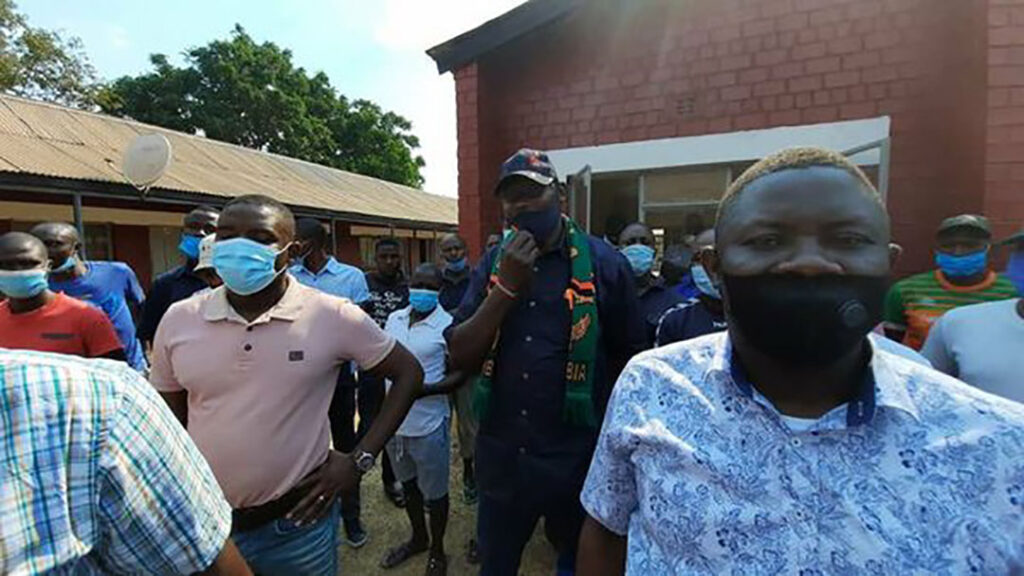ADF STAFF
The outbreak of COVID-19 in Zambia earlier this year meant locking down businesses and quarantining people to stop the spread of the respiratory disease.
For one group of Zambians, however, the quarantine ended in October, and only after the intervention of the national government.
Miners at the Chinese-owned CNMC Luanshya Copper Mines found themselves shut away on the mine property for five months to avoid spreading the virus to their Chinese employers.
The Luanshya lockdown had gone largely unnoticed by government officials until the workers’ families urged the government to act because the lockdown was causing them financial hardship. Many of the miners also farm to generate extra income, and the lockdown had made that impossible.
According to OpenZambia.com, the wife of one of the miners said, “A lot of leaders have been telling us lies that they will make sure our husbands are released from quarantine, but it was all lies.”
The incident at Luanshya brings together three factors now straining Zambia’s economy and politics: falling copper demand, fraught relations with longtime ally China and the impact of COVID-19 on the national health system.
As Zambia’s primary export, copper brings in about 70% of the nation’s foreign revenue. The COVID-19 pandemic shrank international demand for copper. At the same time, Zambia faced the prospect of having to repay millions in foreign debt, most of it to Chinese banks — debt the country has been trying to get relief from so it can address the spread of the virus.
China has been a trading partner with Zambia since the country gained independence in 1960. In recent years, Chinese citizens and companies have increased their footprint in Zambia, particularly in the mining sector. CNMC bought an 80% stake in Luanshya Copper Mines in 2009.
CNMC and other Chinese-owned mines have a long record of abusing their Zambian workers, according to Human Rights Watch, which has reported on problems at CNMC operations.
The Luanshya lockdown was not the only lockdown of a Chinese-owned mine in Zambia this year.
In June, the Mineworkers Union of Zambia (MUZ) negotiated the release of miners from CNMC’s Chambishi mine. Workers lived in dormitories and lacked privacy. Under the conditions of employment, workers who left the mine during the lockdown lost their jobs, according to MUZ officials.
Union officials reported that mine owners offered workers food and a financial stipend if they continued living at the mine.
Further increasing the tensions: In September, CNMC closed Luanshya’s Baluba mine and put more than 1,600 workers on forced leave. The company said the closing was due to the steep drop in copper prices globally and to energy shortages.
After several weeks of asking CNMC to free their workers from the Luanshya facility, local Parliamentarian Joseph Chishala led a government contingent to inspect the mine in early October. The employers responded by releasing the workers.
“We cannot have a situation where our own brothers are living in their own country like slaves,” Chishala said during a press conference at the mine. “This is unacceptable and should not be tolerated.”

